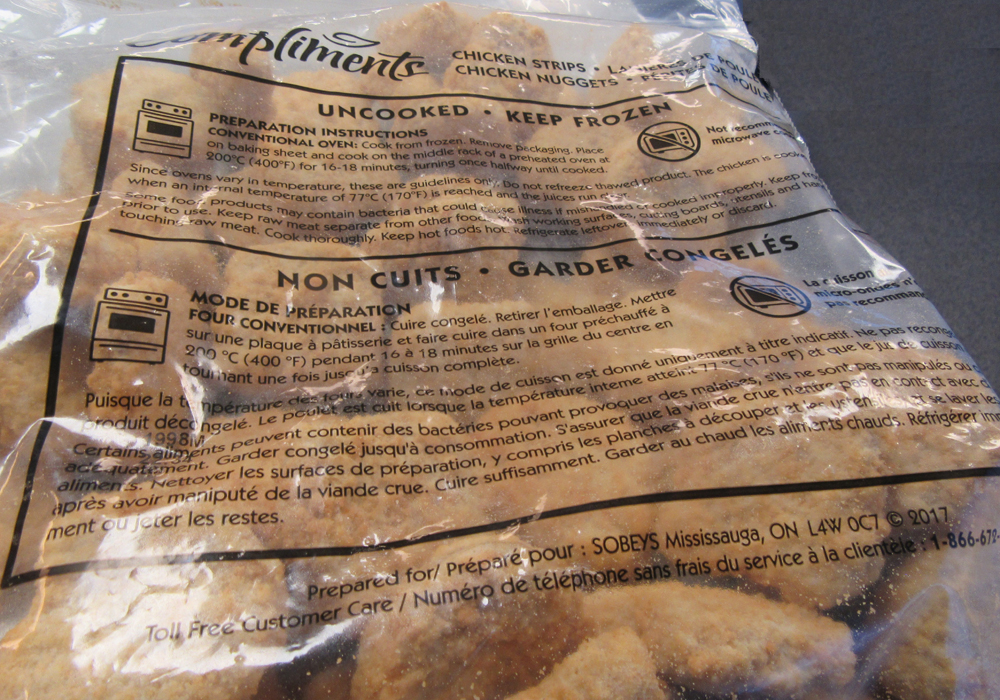The one-kilogram packages of no name chicken burgers sold through Loblaw Companies are subject to recall due to possible salmonella contamination following an investigation in which at least 59 people in eight provinces became ill.
The product has been distributed nationally and bears a best-before date of Feb. 6, 2019 on the outer package.
The Canadian Food Inspection Agency, Public Health Agency of Canada, Health Canada and provincial health departments are continuing the investigation.
As of June 2, six people in British Columbia, eight in Alberta and nine in Manitoba had been confirmed with Salmonella enteritidis illness, along with another 14 in Ontario, 19 in Quebec and the rest in the Maritimes.
Read Also

Farming Smarter receives financial boost from Alberta government for potato research
Farming Smarter near Lethbridge got a boost to its research equipment, thanks to the Alberta government’s increase in funding for research associations.
The public health agency said 10 have been hospitalized and nobody has died.
“Individuals became sick between March and May 2018. The average age of cases is 34 years, with ages ranging from one to 82 years. The majority of cases (61%) are male,” the agency said.
Exposure to poultry including frozen raw breaded chicken has been identified as the source of the illness, it added. Several people who fell ill said they ate breaded chicken beforehand and a sample from the no-name chicken burgers tested positive for salmonella.
Anyone who purchased the chicken burgers is advised to discard them or return them to place of purchase.
Symptoms of salmonella enteritidis include fever, chills, diarrhea, abdominal cramps, headache, nausea and vomiting. Symptoms usually last four to seven days and most people recover without treatment.
However, infants, children, seniors and those with weakened immune systems are at higher risk of serious illness, the agency said.
Some people may not show symptoms but can still spread the bacteria to others.
“This outbreak is a reminder that frozen raw breaded chicken products contain raw poultry and should be handled and prepared no differently from other raw poultry products. Follow cooking instructions carefully and verify the internal temperature after cooking, as recommended, before consuming these products,” the agency said.
Chicken should be cooked to an internal temperature of at least 74 C. Whole poultry should be cooked to at least 82 C.

















